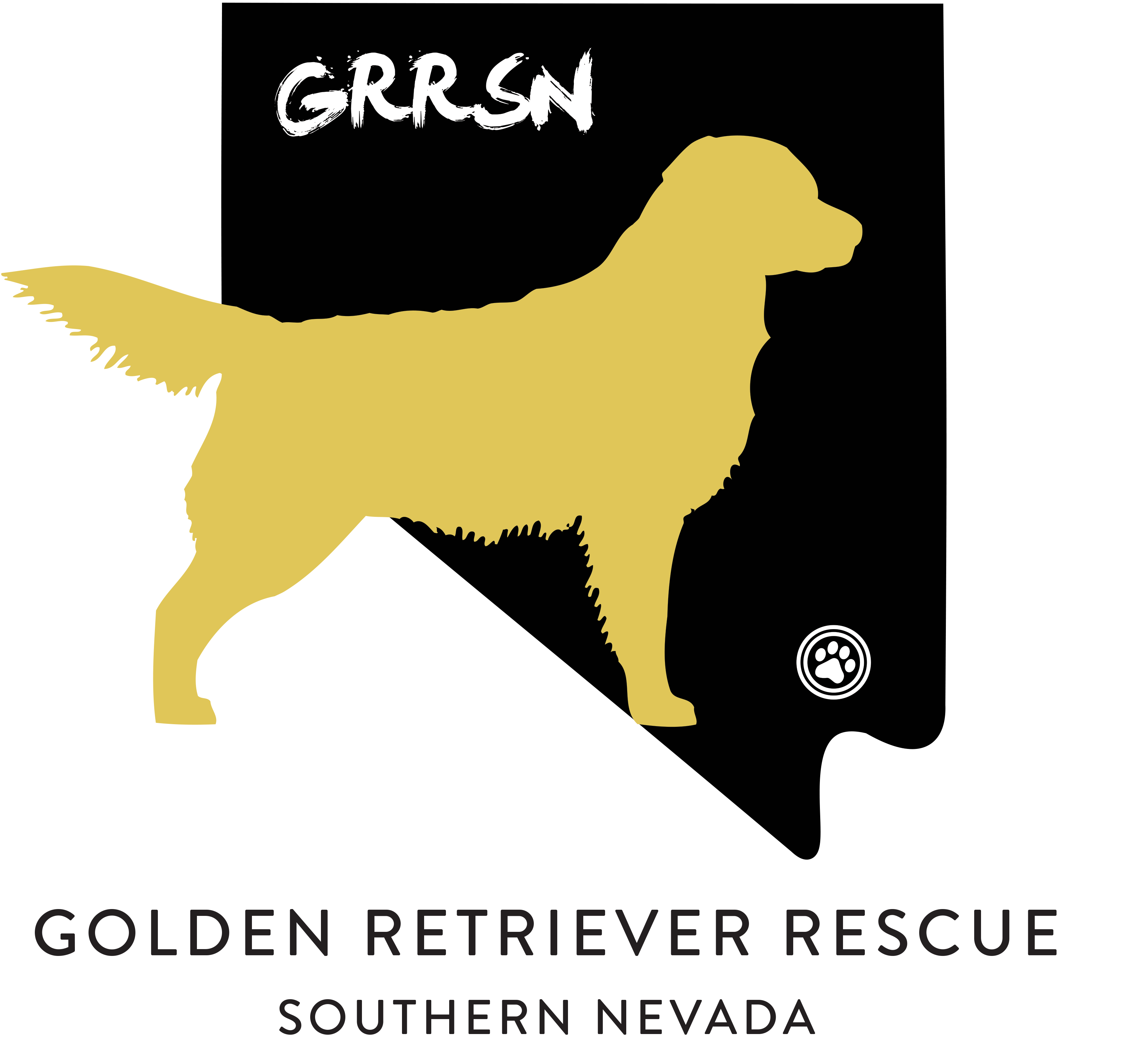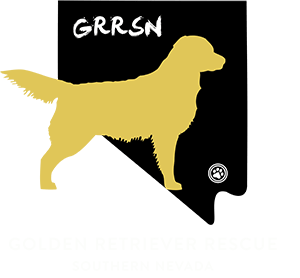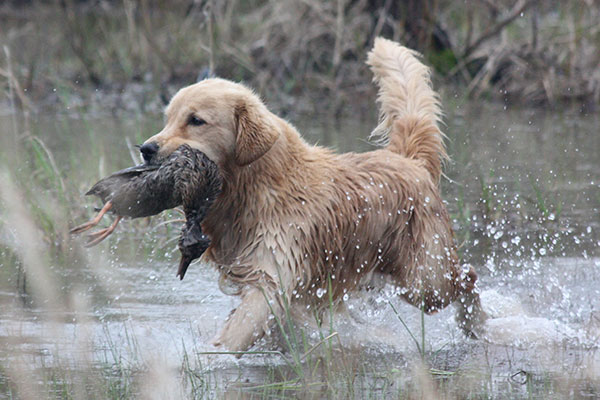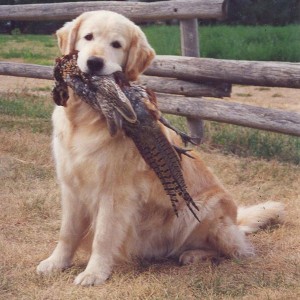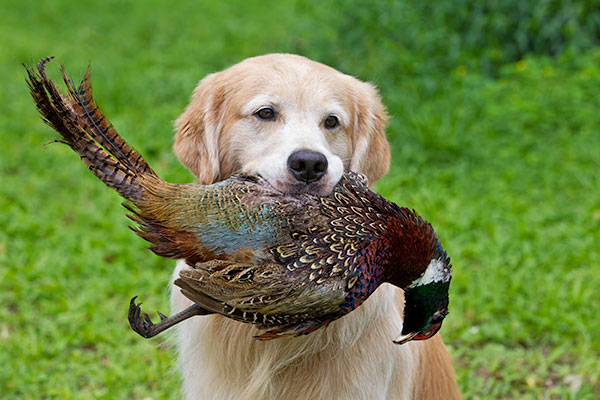
Breed Profile: The Golden Retriever
The old proverb, “Handsome is as handsome does,” suggests that how you act or perform is more important than how you look. This wisdom, unfortunately, has been lost on a significant segment of the purebred sporting dog world.
It is a sad fact that for way too many fanciers of sporting dogs, looks have trumped performance. With several breeds, dogs coming from the “show side” are very pretty animals but leave much to be desired in the field, while those dogs on the “field side” bear little resemblance to anything outlined in the breed’s standard.
In some breeds, the “split” between the two types is such a chasm that people firmly anchored on each side of the divide are so polarized they barely speak to the opposition.
But it is possible to have a hunting dog that is both “handsome” and “field worthy,” although there are stubborn individuals who refuse to concede a good show dog cannot also be an accomplished hunter, or vice versa. But some firmly believe it is possible to have both beauty and brains and that life is too short to hunt with an ugly dog. They achieve senior or master hunter status with their show champions, and, more importantly, their dogs can actually hunt.
While golden retrievers certainly qualify as a “split” breed, finding a dog that not only conforms to the physical standard but also can be a good hunting dog is not as great a challenge as it would be with, for example, Labradors or English springer spaniels.
“Thankfully there is a large population within the breed of moderate, good-looking dogs that are highly trainable, of sound body and mind and very capable of doing a day’s work,” says Anney Doucette. “More and more breeders are leaning toward this type of dog and getting away from the extremes on either end of the spectrum.” Doucette’s dog, Fisher, is a conformation champion and a master hunter that also has high level titles in obedience and rally.
“Form follows function. I firmly believe that a golden retriever can go from the field to obedience to the show ring and be competitive in all,” says Susan Lynch, whose dog Manny is a conformation champion, a master hunter that also has a field trial placement and has been the highest scoring dog in an obedience trial.
“There are many breeders who compete in multiple activities and do well. The Golden Retriever Club of America also has a pair of non-competitive programs that support the working ability, structure and type of the breed. The working certificate (WC) and working certificate excellence (WCX) programs are designed to test a dog’s natural marking ability.”
Affable Breed
Goldens rank third in popularity with the American public for good reason. These retrievers are very versatile with a nice temperament, willing to do almost anything their owners want to do, including the task for which the breed was originally developed—retrieving gamebirds. In this endeavor, one of the great pluses of the golden retriever is their nose.
“Goldens have excellent noses,” says Pat Quinn, who owns Stoney with Paul Kartes and Robin Dalton. In addition to having a master hunter title, a hunting retriever championship, an advanced obedience title
and a rally title, Stoney is a grand champion in the show ring. “But their nose can be a downfall for young dogs or for hunters that only go out a few times a year,” Quinn adds. “They tend to get caught up in old scent until they gain some experience in the field.
“They are durable workers and problem solvers. If a bird is hard to locate, they don’t just push down cover and randomly look for the bird. They tend to figure out where they have been, where they are going and the most likely places where the bird would be. While they aren’t always as flashy as a Labrador, they are steady and willing workers in the field.
“You have to take the time to teach goldens what you want and offer enough repetition to firmly establish what you want in the dog’s mind. They need to be trained in such a way that they are not afraid to make a mistake. They will work harder for you if they are not worried about making mistakes. If you apply too much negative pressure, they might shut down,” says Quinn.
A major positive of golden retrievers is their intense desire to please. “They are happy to sit in freezing conditions for hours on end, filthy, wet and covered in burrs as long as you are sitting there with them,” says Pat Kopko, whose dog Jagger is an AKC, UKC and international show champion, a hunting retriever champion, a master hunter and also has a number of obedience, rally and agility titles.
“Retrieving birds is fun for them but retrieving birds with their owner is priceless. They are methodical rather than maniacal. They have great drive and great enthusiasm as well as great bird sense. They have a lot of desire but they think before they run, even if it is only for a split second, and they tend to take the most efficient route to a bird and back.
“In addition to their temperament, drive and intelligence, you also get their incredible nose and their desire to please and be praised for a job well done. They retrieve as much for you as for their own enjoyment. They are extremely biddable and very efficient hunters.”
Drama Queens
Despite the breed’s many attributes, golden retrievers are not perfect, say the breed’s proponents. “Their coat can be a problem. They’ve been known to pick up a burr or two,” says Jeanne von Barby. “A lot of hunters will cut the feathering way back before hunting season to prevent the dog from picking up half the field. But if a golden has the correct coat, it will shed out dirt easily and prevent rain and snow from penetrating to the skin. It should also have the texture to resist the burrs and matts or tangles.
“I have also had dogs that did not handle a lot of repetition very well,” von Barby continues. “They seemed to think that they understand it and that they needn’t continue to do the same thing over and over. I also don’t think goldens handle the e-collar pressure as well as, say, Labs. Unfortunately I’ve seen many handlers increase the e-collar pressure on the dog until the dog absolutely freezes and shuts down.
“I can’t emphasize enough the need to correctly teach each and every step of collar training so the dog understands why it is being applied and how to ‘turn it off.’ Sometimes they are trying so hard to do the right thing that they just try everything they can think of instead of paying attention to the handler. Then you have to stop, take a deep breath, let them collect themselves and start over.
“One other thing is that goldens can very easily think themselves into trouble. They are enormously eager to please but they do have to know what their owner/handler wants and how to go about doing it.” Von Barby’s four goldens, Leica, Jiffy, Wrigley and Minnie, are all conformation champions and have master hunter titles along with advanced obedience, rally and tracking titles.
There are some other things that need to be taken into consideration when training a golden retriever. Some of them may have issues with big water marks and many dogs in the breed are drama kings/queens when it comes to force training. “You typically see issues with goldens on big water marks and many that are not fully trained and put through a complete force program will refuse water at some point in their lives,” says Doucette. “In my opinion, water force is an essential element in training a golden retriever.
“Two things make or break a golden in the field: its breeding and its trainer. If the dog does not have intelligence, trainability and a work ethic in its makeup, a good trainer can only bring the dog along so far. On the other hand, if the dog is saddled with a lazy, inconsistent or wimpy trainer or a trainer that is a bully, all the talent in the world will be wasted.
“What I frequently see with novice golden trainers is that they skip over the basic foundation training—obedience, manners, collar conditioning, force-fetch—and then expect the dog to naturally ‘know’ how to do advanced field concepts. There is also the issue that many goldens are drama queens/kings when it comes to force training which causes their owners to back off when what they really need to do is work through it.
“Having said that, goldens thrive on praise and positive feedback from their trainer. A good trainer must be both creative and consistent in their application of force, reward, correction, praise, pressure and motivation. It is a delicate balance because goldens are more sensitive to training mistakes than a Labrador would be. It’s important to never say, ‘I can’t do XYZ because I have a golden retriever.’
“A good dog is a good dog, a well-trained dog is a well-trained dog and there is nothing a golden can’t do based on their breed alone,” Doucette concludes.
Setting Standards
In a split breed, someone looking for a dog that meets both the standard for the breed and has the capability of being a good field dog frequently has to be persistent and do a fair amount of research. “For people who want a good field dog, I look for intense birdiness, testing with birds and evaluating the reaction,” says von Barby.
“I look for responsiveness with the pup’s littermates and with humans. I like to see a certain amount of independence and a puppy that shows it can think things through. I also like one that is forgiving of the pressure during puppy training.”
“I like good eye contact,” says Lynch. “When I’m looking at a litter, I want a puppy to seek me out and try to get my attention. I like pups that carry things in their mouths and have a decent amount of energy but aren’t crazy. A silly puppy that tosses toys, shakes them and play bows tells me it has some play drive and dogs with play drive are generally easy to motivate.
“It’s really important to ask a lot of questions of the pup’s breeder. Do they hunt with their dogs? Do they compete in hunt tests or field trials? How are their dogs around other dogs? Kids? You should also expect them to ask you a lot of questions about what you are looking for in a pup,” Lynch concludes.
“Pedigree is extremely important,” Kopko adds. “Relatives with natural hunt talent are a must since some golden lines have had their hunting/prey desire diminished. Most like to retrieve but not a lot of them will pick up ducks simply because they love them. Good hunt puppies must show bold tendencies and not be fearful.”
“It’s really important for prospective owners to have a clear picture of the golden they hope to acquire,” Quinn says. “More and more breeders are looking to produce multi-purpose dogs that not only meet the physical requirements of the breed standard but also have the talent, stamina and versatility to work in the field, in obedience and in agility.
“The bottom line is that a person seeking a golden that’s both pretty and can do whatever job they want the dog to do needs to do some research.”
